In today’s digital age, travelers are relying more and more on search engines to plan their vacations. They can use Google to search for hotels, accommodations, restaurants, etc. Therefore, travel agencies need to optimize their websites and content to appear right in front of these users. In fact, having effective Search Engine Optimization (SEO) strategies is crucial for any travel agency that wants to succeed in 2023.
Whether you’re a small local agency or a large travel corporation, investing in SEO is worth it in the long term as it will not only boost your online presence but also establish you as a reputable and trustworthy agency for travelers looking to book their next trip.
In this blog article, we will explore the different aspects of SEO for travel agencies and share with you our best strategies to help you attract more clients from organic traffic.
Principles of SEO for Travel Agencies
Before diving straight into the implementation of our strategies, you need to understand first the principle of Search Engine Optimization and why it matters. According to the definition from Search Engine Land:
“SEO is the process of improving your website to increase its visibility in Google, Microsoft Bing, and other search engines whenever people search for your product, services or relevant topics of your expertise.”
Search Engine Land (2023)
In the case of travel agencies, it is the process of optimizing their website to appear when users search for destinations, accommodations, flights, or any travel-related information. As you can see in the graphic below from Reliablesoft, 60% of travelers rely on search engines to plan their travel. Therefore, building an SEO strategy is a must to compete in such a saturated market.
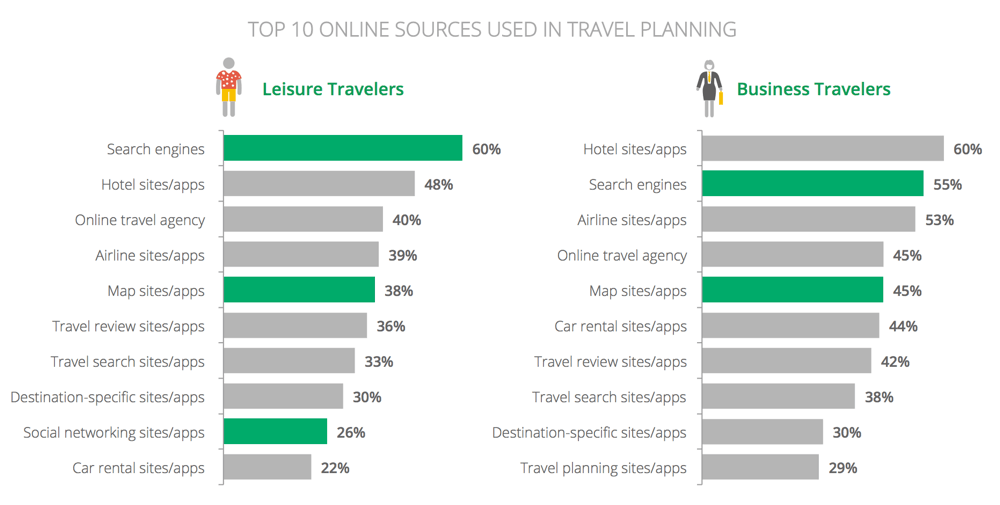
Let’s take as an example an American couple looking to visit the city of Fes. Their typical journey will start by browsing search engines to get more information about the city, the different activities there, and even checking out the different housing options.
This is where travel agencies can capitalize on SEO-optimized content to increase their chances to rank higher on the SERP, and thereby capture the attention of this couple to eventually convert them into paying clients.
3 Key Aspects of a Good SEO Strategy
Now that you are more familiar with the principles of SEO, let’s go through the different steps to build your organic strategy. We will take a practical example of a travel agency located in Marrakesh and use it as a case study to show you how you can build an SEO strategy from scratch.
Keyword Research
Everything starts with choosing the right keywords. In fact, high-quality keywords are the lifeblood of your strategy. SEO takes ongoing efforts and choosing the wrong ones will waste your time and resources.
There are several types of keywords with different intents, we invite you to read our previous article to understand the specificity of each one of them. In short, we can classify keywords into 4 main categories:
- Navigational (e.g. Company Name)
This keyword is specific to the travel agency in Marrakesh and targets users who are already searching for their brand name.
- Transactional (e.g. Book Marrakesh Tour Package)
This is one of the most valuable keywords as it targets users who are ready to make a purchase or book a service, such as booking a tour package in Marrakesh.
- Commercial (e.g. Best Travel Agency Marrakesh)
This keyword is more interesting because it combines both commercial and informational intent. Users searching for this keyword are likely in the research phase and looking for reviews and recommendations for the best travel agency in Marrakesh.
- Information (e.g. Top 10 Things to Do In Marrakesh)
This keyword targets users seeking information about Marrakesh and the activities available there. This is the opportunity to create content that provides valuable information about the city and position the agency as an authority on the destination.
To begin your keyword research, a good rule of thumb is to start with a Google or Excel Sheet to organize your work and have a bird-eye view of your options. As for the research tools, there are many options to choose from, both paid and free. Fortunately, most paid tools offer some kind of freemium model to get you started with your first research. In this example, we will use a mix of both: Ubersuggest & Answer The Public.
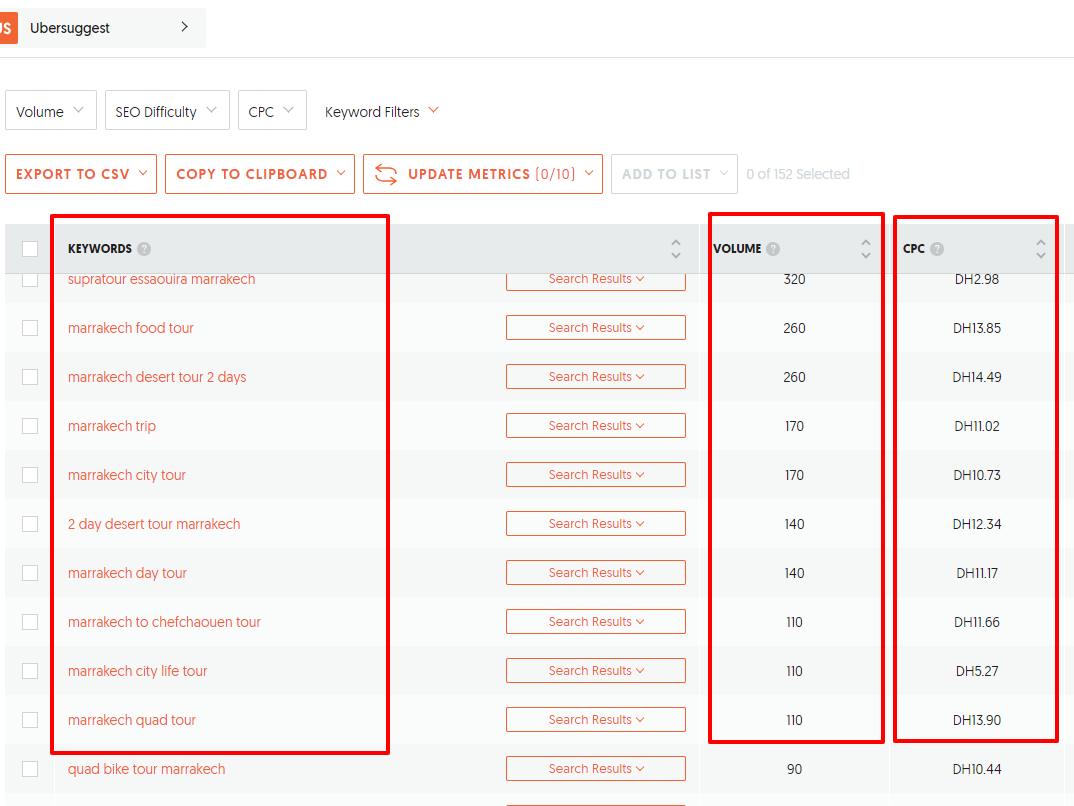
As you can see above, we can start searching for keywords and get an idea of their traffic. These SEO tools provide you with a lot of data points but it can quickly become overwhelming to go through all of them. Thereby, we typically look up for three main criteria to judge a keyword’s quality:
- Search Intent:
The keyword intent must be related to our marketing funnel.
- Search Volume:
It should have enough volume to justify our SEO efforts (min 50 searches/mo)
- Competitivity:
This is a difficult metric to judge but most tools have a built-in algorithm that gives a difficulty level for each keyword. If you’re just starting out in a competitive industry like travel agencies, we suggest you focus on the low-hanging fruits, the keyword with less difficulty and easier to rank for.
- CPC (Optional):
Some tools like Ubersuggest or SEMrush give you an estimation of the cost-per-click (CPC) to display ads for the given keywords. As a general rule, the higher the CPC, the more valuable the keyword is to advertisers, indicating that it is a keyword worth optimizing for.
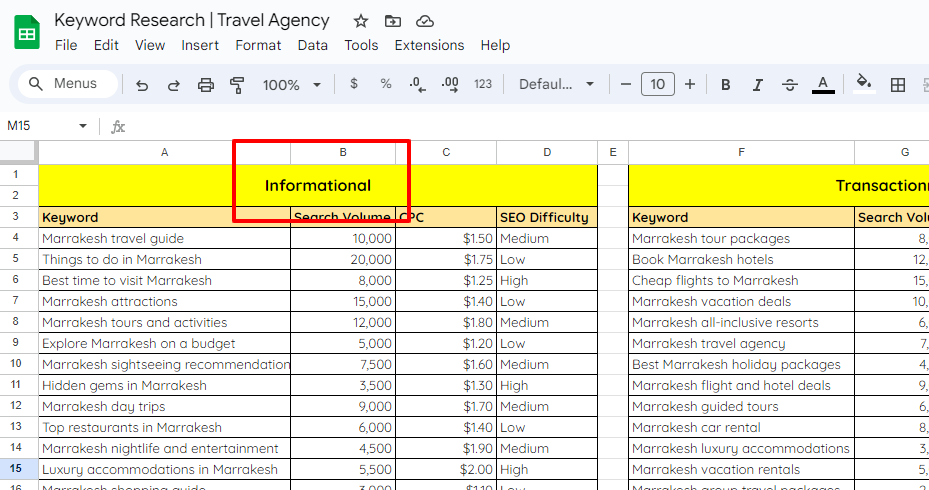
After finishing your keyword research, your spreadsheet should like the above, segmented per search intent along with all the relevant data points to make our decisions and move to the next step.
Optimizing Website Structure and Navigation
Now that you have selected your keywords, you can start building your content strategy. The first step is to create a sitemap for your website. This is where you will lay down your website structure with the different categories.
A perfect analogy to describe this is a tree with branches representing different sections and pages. It provides a well-structured framework that guides visitors through the various sections and pages.
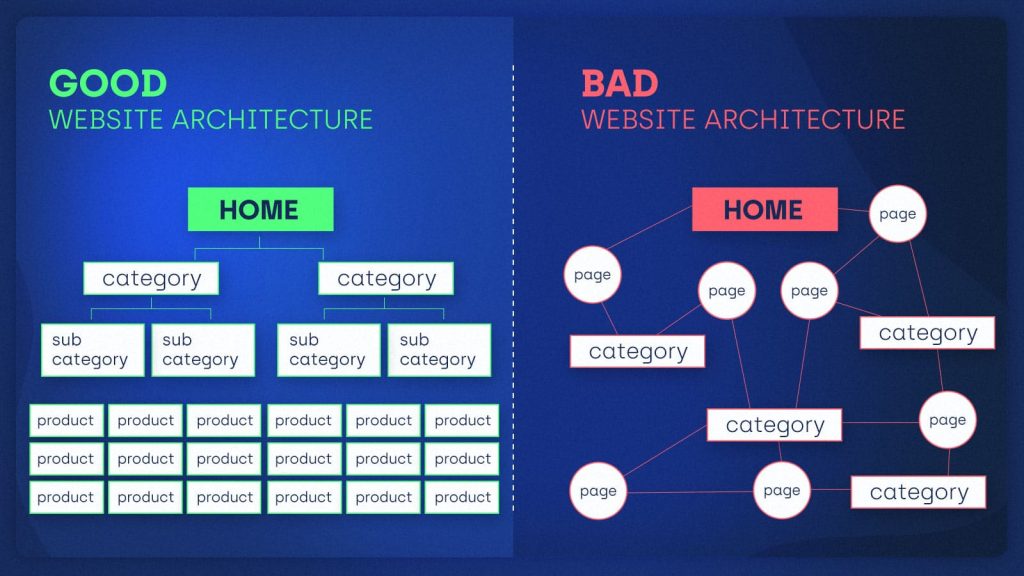
In the case of a Travel Agency, the best thing is to start with a simple structure that you can improve over time. You can divide it into 3-4 sections with each one addressing a different intent:
- Destinations
It includes mainly commercial and transactional content such as tour pages, activities, local experiences, etc.
- Services
It is mainly for navigation purposes but this is where you can list the additional services that you offer such as hotel reservations, car rentals, travel insurance, etc.
- Blog
This is the home of your informational content, where you will post your blog articles.
Now that you have a proper structure, you can start writing your content. Each page should target one specific keyword. We covered all of the fundamentals of writing an SEO-optimized page here in one of our article.
Google My Business Listing
Google My Business (GMB) is a free tool provided by Google that allows businesses, including travel agencies, to manage their online presence on Google. It enables businesses to create and update their business listings, which appear in Google Search and Google Maps when users search for relevant products or services.
Therefore, having your agency listed on Google My Business is a crucial aspect of your SEO strategy. It will boost your local rankings and help you reach more people organically.
The following video from RankAcademy will guide you through all the steps to set up your account. Make sure to provide accurate and detailed information about your agency, including name, address, phone number, website, and business hours.
After setting it up, you should actively encourage your satisfied customers to leave positive reviews on your GMB listing. Reviews not only improve your local rankings but also influence potential customers’ decisions. This is the best way to build a positive reputation within your target location.
Conclusion
As we saw throughout this article, SEO is an effective method to generate leads for your travel agency. We discussed the different aspects of building a solid content strategy to succeed in the long term.
By embracing SEO as a fundamental marketing strategy, travel agencies can drive more organic traffic, increase bookings, and position themselves for long-term success in the competitive travel industry.
At Howdy Code, we help businesses just like yours design amazing websites and create solid SEO strategies. Feel free to reach out to us to get your action plan.

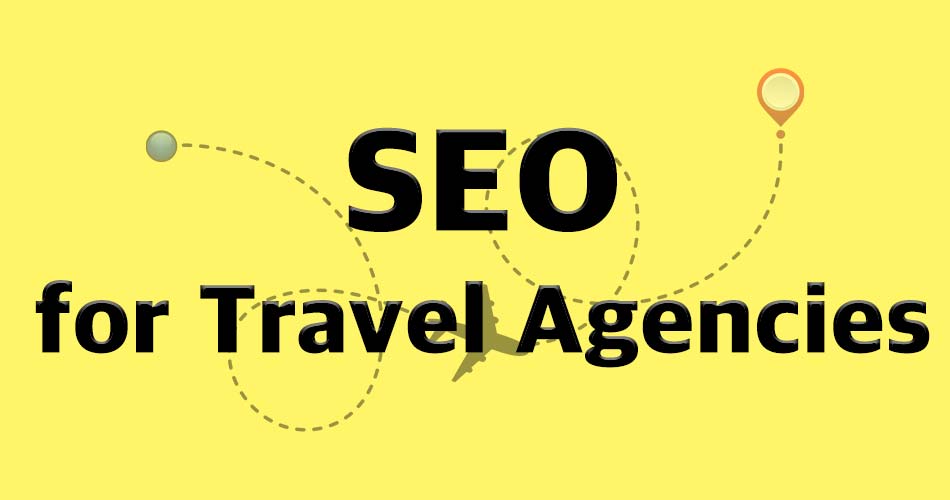
Comments